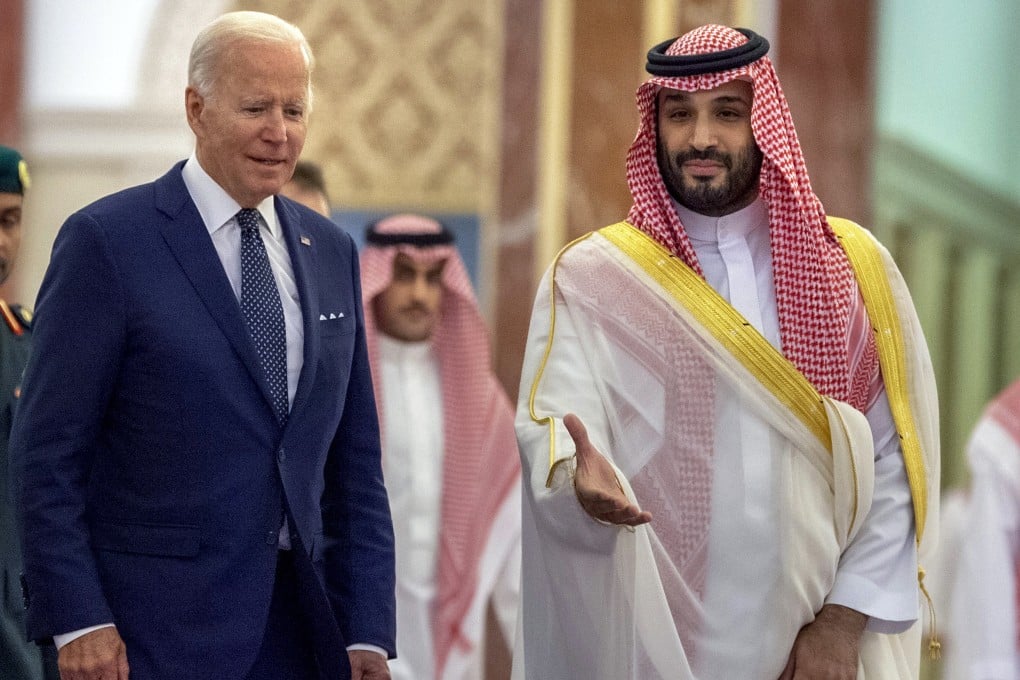Advertisement
US-Saudi feud over oil prices could send Riyadh barrelling towards China: experts
- US President Joe Biden said this week he would ‘re-evaluate’ ties with the kingdom over its refusal to lower oil prices
- Analysts say Riyadh and its Gulf Arab allies are likely to push back against any US punishment, a move which could benefit Washington’s rivals like China and Russia
Reading Time:3 minutes
Why you can trust SCMP
23

China is a likely beneficiary of expected Saudi Arabian acts of defiance against the United States, following President Joe Biden’s decision this week to “re-evaluate” ties with the kingdom over its refusal to lower oil prices ahead of the US midterm elections, analysts said.
The current discord means “China will certainly have a greater opening” in Saudi Arabia, said Kristin Diwan, a senior resident fellow at the Arab Gulf States Institute in Washington.
“But there are dangers for China as well,” she said. “The basic security architecture of the region can shake, but if it falls completely this will certainly end up harming China’s energy security and that of its Asian neighbours as well.”
A deep slide in relations between Riyadh and Washington would be damaging to the economic interests of China and other major Asian economies who depend on US forces in the Middle East to protect energy supplies from the Gulf and also trade with Europe.
Advertisement
Saudi Arabia and its neighbours Kuwait and the United Arab Emirates – the only Organisation of Petroleum Exporting Countries (Opec) members with any spare oil production capacity – have repeatedly rebuffed US pressure to increase output to offset the inflationary impacts of the Ukraine war.
Adopting neutrality, the Gulf states have upheld their Opec+ agreement with Russia, and Riyadh reiterated on Tuesday that its backing to cut 2 million barrels per day in the Opec+ production quota was driven by the aim of “achieving balance and stability in the global oil markets”.
Analysts said Riyadh and its Gulf Arab allies are likely to push back against US vows to punish it for last week’s decision by the Opec+ group of oil exporters to cut production.
Advertisement
Select Voice
Select Speed
1.00x
